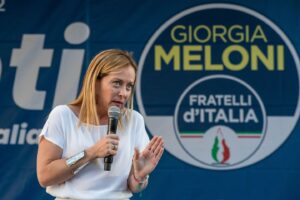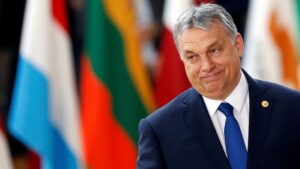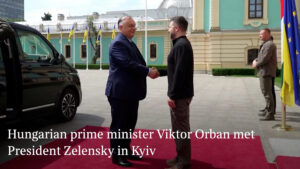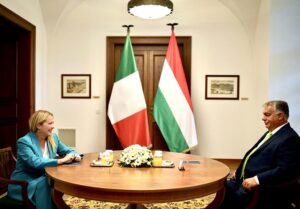In a significant diplomatic encounter, Italian Prime Minister Giorgia Meloni and Hungarian Prime Minister Viktor Orbán recently met in Rome to discuss critical issues impacting both their nations and the broader European landscape. The discussion centred on the European demographic crisis, family policies, economic competitiveness, and strategic approaches to migration and defence. The dialogue underscored the shared concerns and collaborative efforts needed to address these pressing challenges.
Addressing the European Demographic Crisis
Giorgia Meloni began by highlighting the severe demographic crisis affecting Italy and Europe as a whole. She emphasized that this crisis threatens various aspects of identity, including national, family, and religious identities. Meloni pointed out that without a strong sense of identity, individuals become mere “unconscious numbers,” susceptible to manipulation. She advocated for robust family and child support policies to initiate a cultural shift and ensure the preservation of these identities.
Drawing inspiration from Hungary’s successful reversal of its negative birth rate trend, Meloni praised the Hungarian government’s policies. She noted the increase in birth rates, marriages, and female employment in Hungary, attributing these changes to family-friendly policies. Meloni emphasized that true freedom for women involves the ability to pursue careers without sacrificing the desire to have children and vice versa. She called for a similar commitment and courage across Europe to achieve such positive outcomes.

Enhancing European Competitiveness
Viktor Orbán shifted the focus to the economic challenges facing Europe, particularly declining competitiveness. He stressed the importance of a successful and competitive European economy for both Italians and Hungarians. Orbán advocated for strong industrial policies and a cooperative green transition to prevent job losses. He criticized the current party-political approach to European Union positions, arguing for an inclusive and collaborative Union that avoids creating majorities and minorities.
Orbán expressed concern over the current path of the European Union, which he believes diverges from the original vision of inclusion. He argued that exclusionary practices undermine the Union’s foundational principles. Consequently, Orbán and Hungary cannot support the ongoing party agreement on the division of European positions, urging a reconsideration of this strategy for the Union’s future.

Strengthening Bilateral Relations and Strategic Priorities
Meloni welcomed Orbán to Rome, acknowledging Hungary’s upcoming presidency of the Council of the European Union. She expressed appreciation for Hungary’s focus on demographic challenges, which she views as essential for building a strong Europe. Meloni emphasized the importance of reversing declining birth rates to sustain economic and social systems across the continent.
The discussion also highlighted the strong bilateral relationship between Italy and Hungary. Meloni praised the growing economic ties and political dialogue between the two nations. She noted Italy’s support for the Hungarian-led NATO multinational battalion and their cooperation in the Balkans, particularly in promoting enlargement or “reunification” of the region.

Addressing the Conflict in Ukraine and Migration Policies
The leaders also touched upon the conflict in Ukraine. Despite differing views, Meloni appreciated Hungary’s cooperation with the European Union and NATO. Both leaders reiterated their support for Ukraine’s sovereignty and emphasised the importance of reconstruction efforts to envision a prosperous post-war Ukraine.
On migration, both Meloni and Orbán agreed on the need for a consolidated European approach. They advocated for safeguarding external borders, combating illegal immigration, and addressing human trafficking. Meloni highlighted innovative immigration strategies, such as the Italy-Albania protocols, and urged the European Commission to continue supporting such approaches.

Looking Ahead
The meeting concluded with both leaders expressing optimism about future collaboration. Meloni thanked Orbán for his visit and looked forward to the upcoming European Council meeting on November 1st, where they will discuss the strategic agenda for the European Union. Meloni wished Orbán success in Hungary’s upcoming presidency, underscoring the importance of a unified and strategic approach to Europe’s challenges.
In summary, the discussions between Meloni and Orbán shed light on critical issues such as the demographic crisis, economic competitiveness, bilateral relations, and strategic priorities for the European Union. Their dialogue emphasized the need for collaborative efforts and innovative solutions to ensure a prosperous and sustainable future for Europe.
To gain further insights into this significant meeting, you can watch our detailed coverage on YouTube. – https://youtu.be/HSaG4kLg4-s

